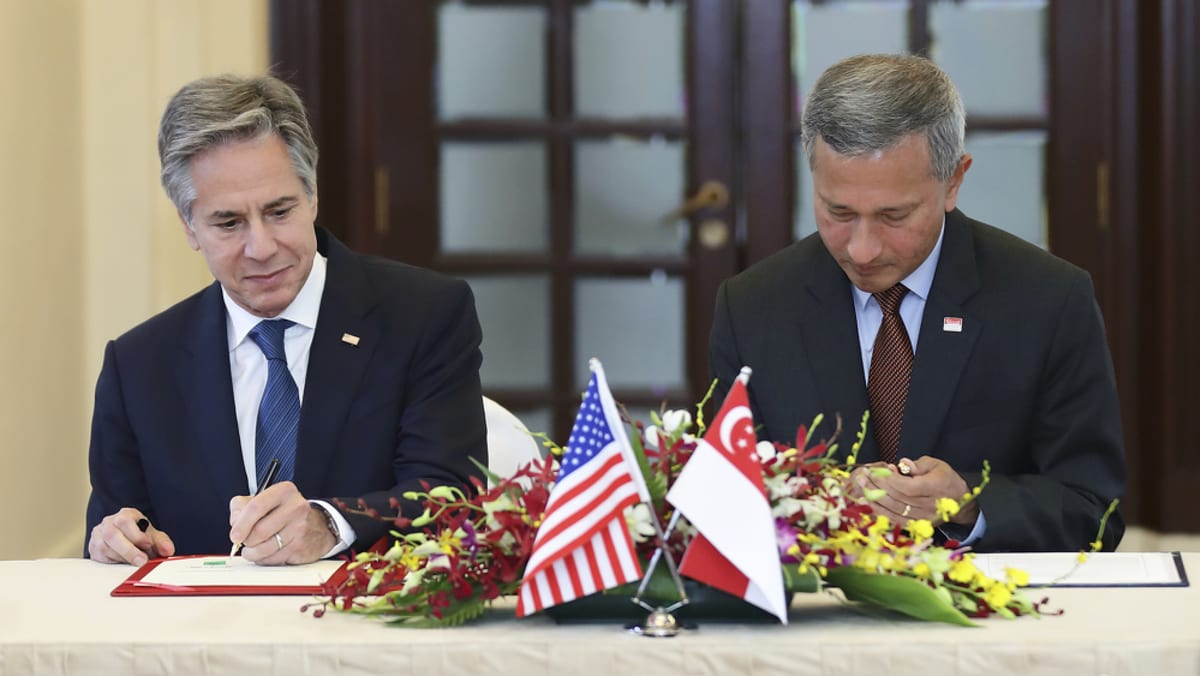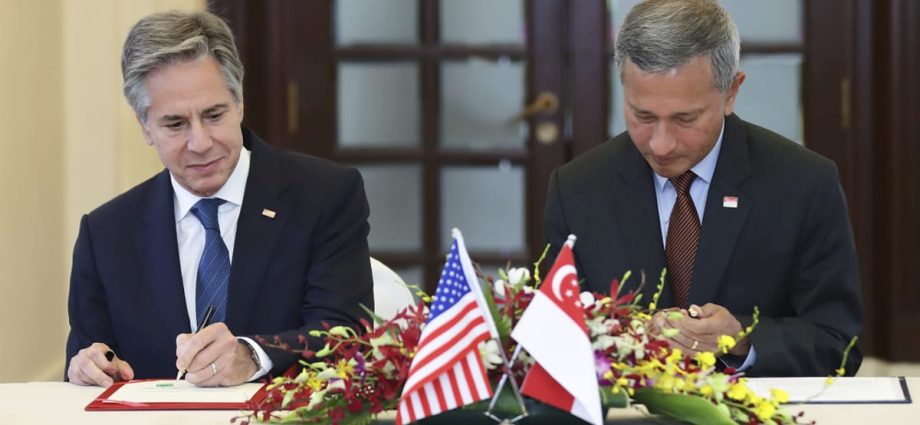
SINGAPORE: Singapore still has not decided whether to deploy nuclear energy in the country, but signed an agreement with the United States as it continues to study ways to decarbonise its power sector.
Foreign Affairs Minister Vivian Balakrishnan and US Secretary of State Antony Blinken inked the civil nuclear cooperation agreement on Wednesday (Jul 31) during an official visit by Blinken to Singapore.
Also known as a “123 Agreement”, it will need to be reviewed by the US Congress before it comes into force. The agreement will last for 30 years once it kicks in.
What is a 123 Agreement, and why is it important?
When the US wants to conduct a significant nuclear export, the importing country must first sign an agreement stating that it will prevent the spread of nuclear weapons.
That is specified under Section 123 of the US’ Atomic Energy Act, which is how the agreements got their nickname.
At the signing ceremony, Dr Balakrishnan said the agreement facilitates access to information and technological expertise, and allows Singapore to engage more with civil nuclear experts in the US.
The agreement outlines a way to deepen peaceful nuclear cooperation between the US and Singapore based on a mutual commitment to nuclear non-proliferation, according to a joint statement by the US and Singapore governments.
Singapore can also get involved in other capacity-building initiatives such as the Foundational Infrastructure for the Responsible Use of Small Modular Reactor Technology (FIRST) programme.
The two countries intend to better understand how advanced nuclear energy technologies – including small modular reactors – can potentially support climate goals while balancing critical energy needs.
“This will support Singapore’s efforts to understand and evaluate advanced nuclear energy technologies, should viable options emerge,” the statement said.
How does it work for countries that sign one?
The US has 24 active 123 Agreements, including with countries such as China, India, Indonesia, Vietnam and the Philippines.
The agreements have to include nine non-proliferation criteria set out in Section 123 to guarantee that the partner countries use any information gained for peaceful purposes.
For example, nuclear materials must be physically secured and cannot be enriched, reprocessed or transferred without consent from the US.
Countries must also abide by the International Atomic Energy Agency’s standards on the use and security of nuclear material.
The Department of State’s website said such agreements set the foundation for collaboration with the US on nuclear energy as well as related educational and technological transfers.
A 123 Agreement with the US also allows Singapore to work with other countries that use nuclear technology originating in the US.
“This will allow us to work more closely with US institutions, as well as civil nuclear entities in other countries,” the Ministry of Sustainability and the Environment (MSE) and the Ministry of Trade and Industry (MTI) said in a factsheet.
“Such collaboration will facilitate Singapore’s capability-building journey.”

